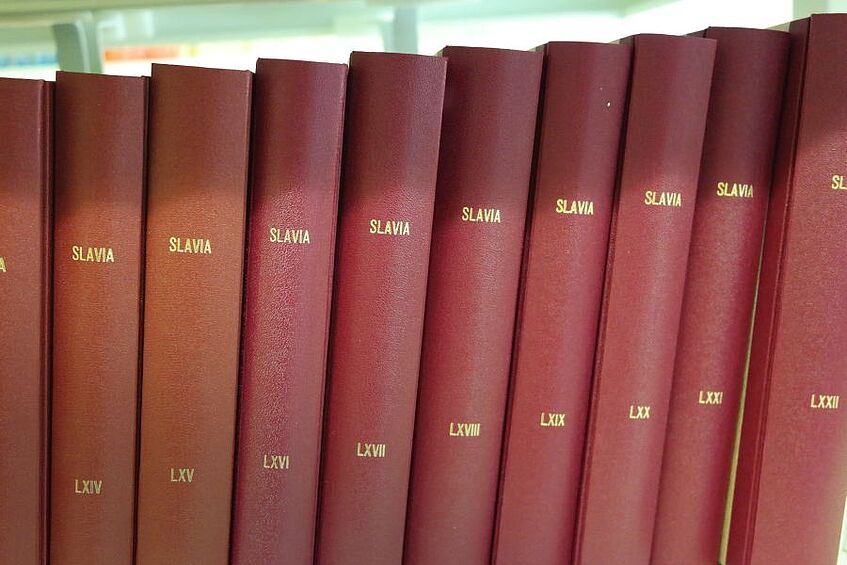Slavonic Studies (Master)

© Natascha Ilic
The master’s programme in Slavonic Studies builds on the prior bachelor’s degree and equips students with comparative, contrastive, historical and theoretical knowledge of the Slavic languages, literatures and cultures. These are analysed in in their entirety in history and present, taking into account their internal and external connections. In the two-year master’s programme, students can set their own focus in linguistics or literary and cultural studies, depending on their interests. In addition, they can make an active contribution to scientific research by developing their master’s thesis.
Offered Languages
Languages: Bosnian/Croatian/Serbian, Bulgarian, Czech, Polish, Russian, Slovak, Slovenian, Ukrainian
The language options you can choose from depend on the language skills proven by your preious studies.
Master of Arts
Degree Programme Code: 066 250 XXX
4 semesters / 120 ECTS credits
Language: German & language(s) according to offered languages
NO entrance examination
Facts & Figures
- Students: n.a.
- Graduates in the last academic year: n.a.
- Number of semesters needed for graduation (median): n.a.
Data updated on: 03.12.2024
Attention
Instruction Language German
Please note that the instruction language of this programme is German. To start the degree programme, you need to hold a certificate of German proficiency on C1 level.
Admission Procedure
Information about the admission procedure
Information on Previous Studies:
In any case eligible degree programmes at the University of Vienna:
Getting started
Getting Informed
Study Programme
The degree programme consists of compulsory modules on the following subjects: Language acquisition and specialisations in linguistics, literary and cultural studies, or history and philology. In addition, students have to complete the master’s module, including a master’s thesis and a master’s examination.
Five Concepts
which you will deal with during your studies:
- Language skills
- Theory
- Methods
- Old Church Slavonic
- Diachrony
... and many more.
Overview of the programme structure & topics
Here you find the current offer of courses for this programme to gain better insight into the topics and structure. For more information please click on the respective level.
After Graduation
Graduates can pursue a career in the following areas:
- library sector, publishing and media,
- education,
- practical areas of application for languages or teaching languages,
- cultural management,
- companies, banks and diplomatic services.
Graduates' Perspective on the Degree Programme
Graduates ...
- say that this degree programme receives the grade: 2.3 (good)
- rate the level of difficulty as: 3.1 (appropriate)
→ These results are based on feedback from 13 graduates.
*You can find further assessments of the degree programme from its graduates’ perspective in the graduate survey of the master's programme in Slavonic Studies (in German).
Graduates ...
- find employment within 1 month after graduation on average.
*You can find further information on career entry and career paths in the tracking of graduates "MA Slavonic Studies".
